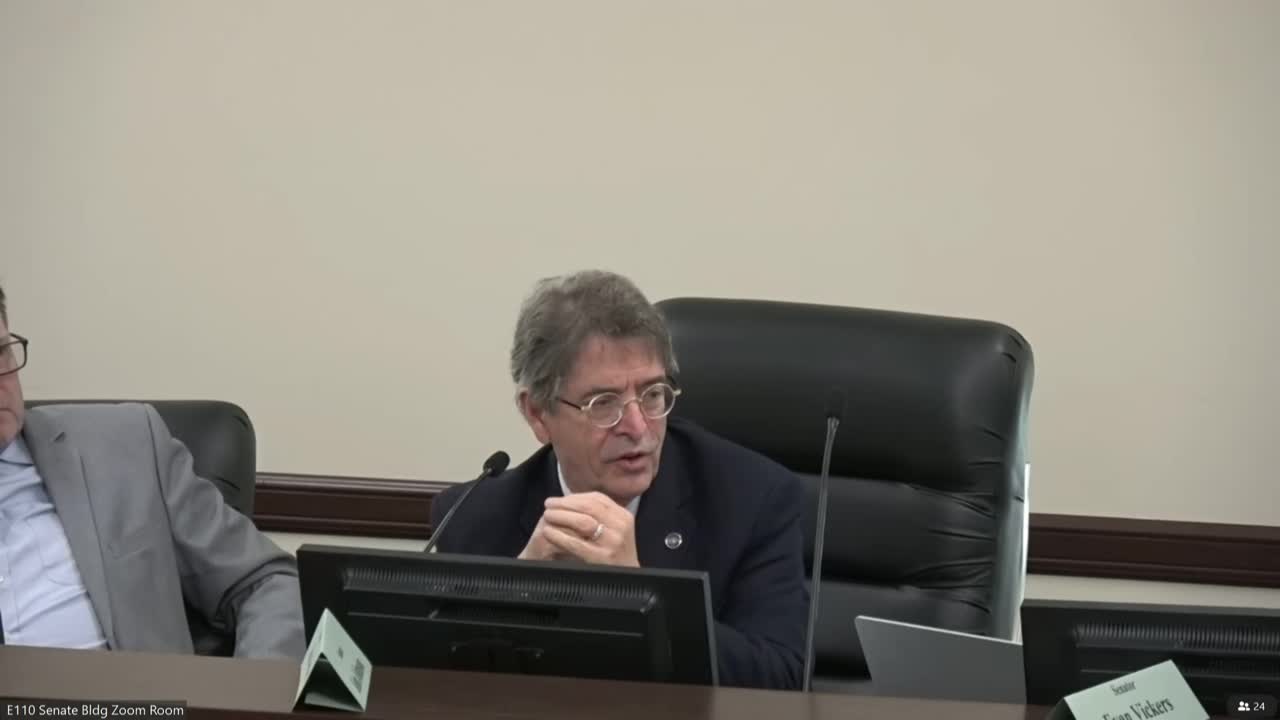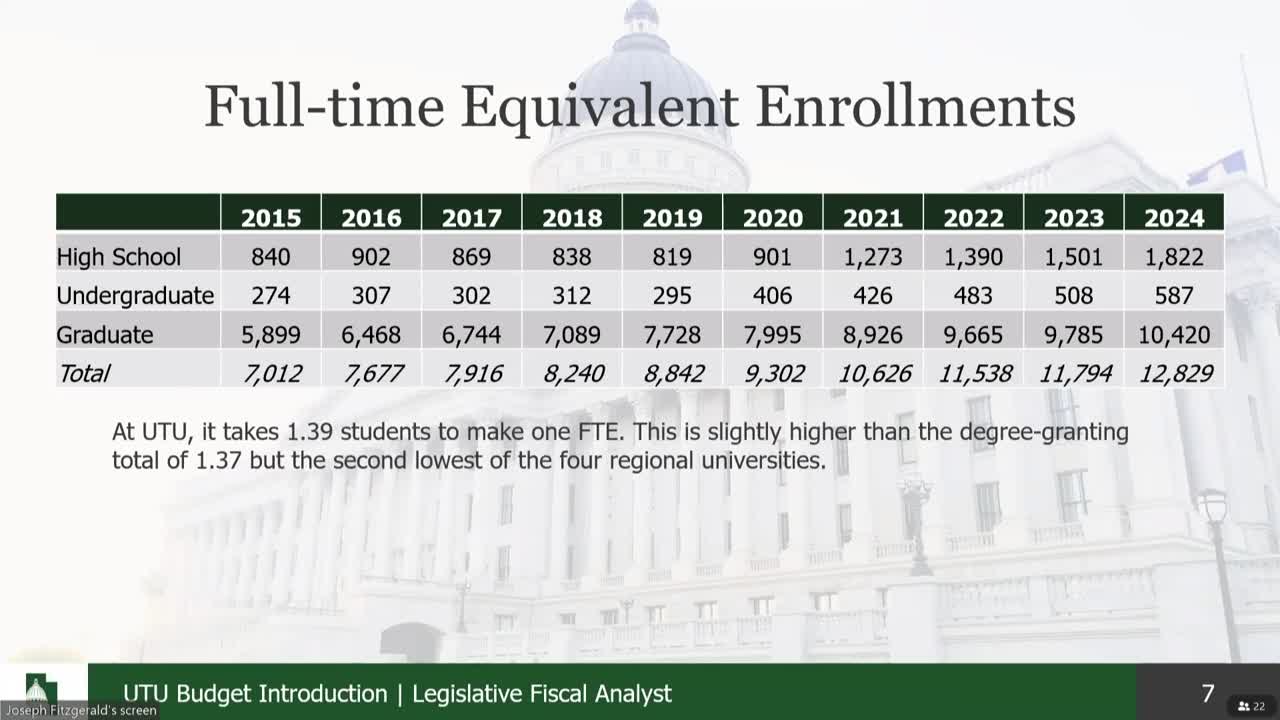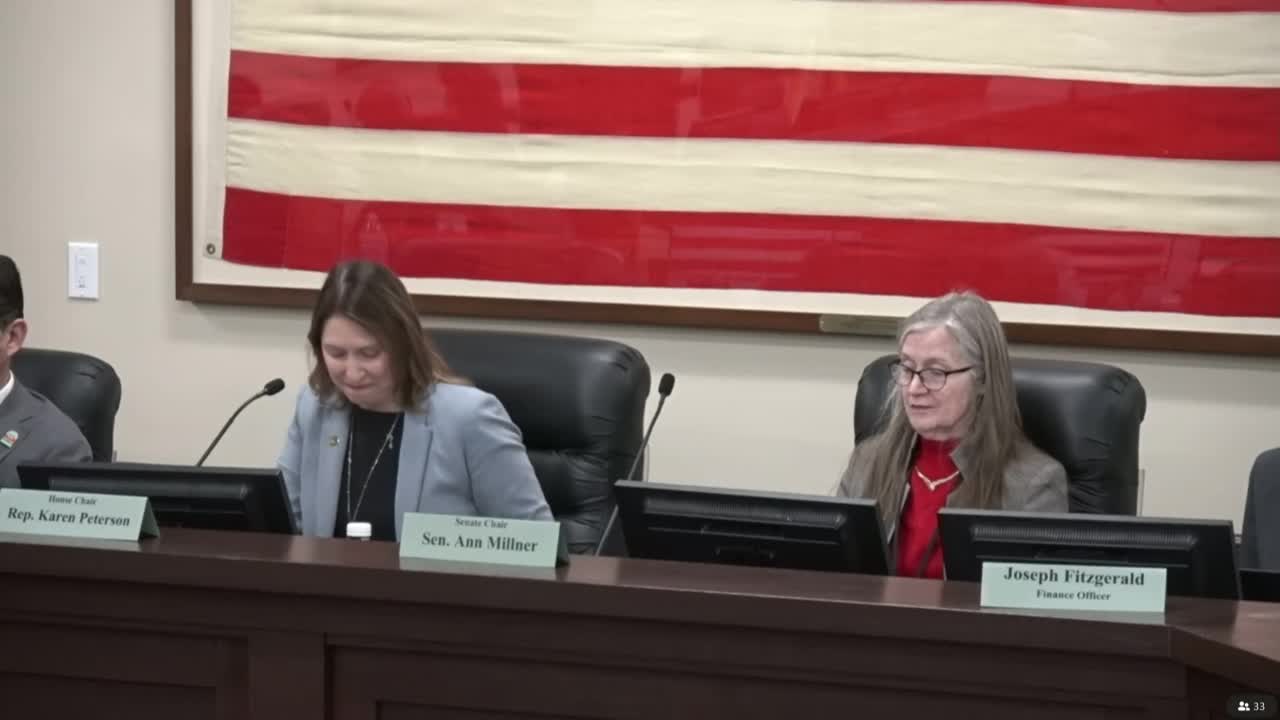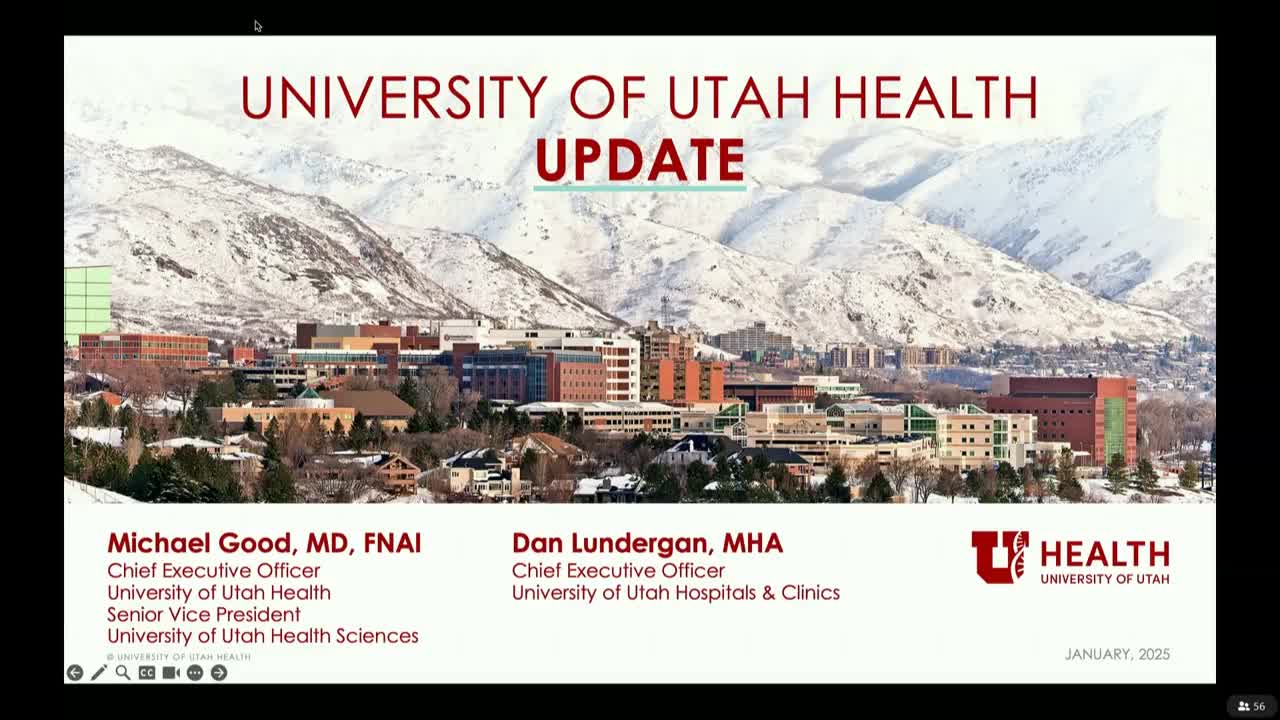Article not found
This article is no longer available. But don't worry—we've gathered other articles that discuss the same topic.

University of Utah outlines priorities: AI, energy, genetics, medical school expansion and cost savings

Votes at a glance: Committee approves January minutes and adjournment

Utah Tech highlights polytechnic growth, innovation plaza and community partnerships

Southern Utah University reports enrollment growth, higher retention and regional workforce partnerships

